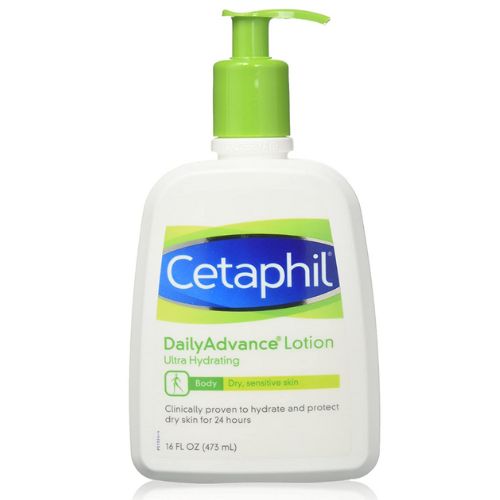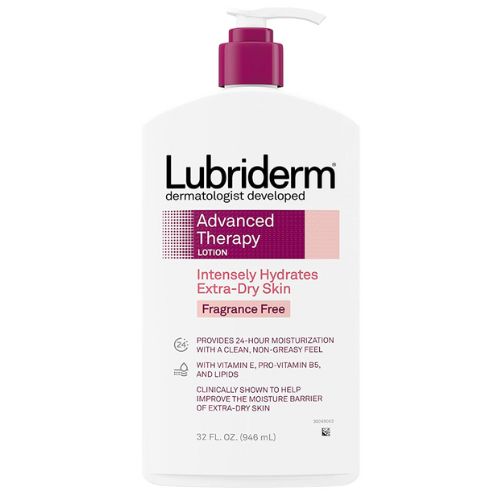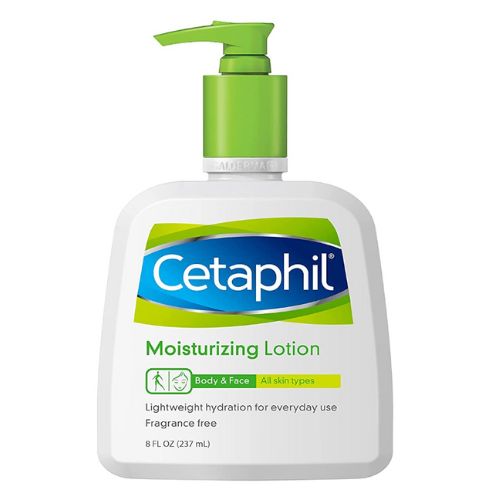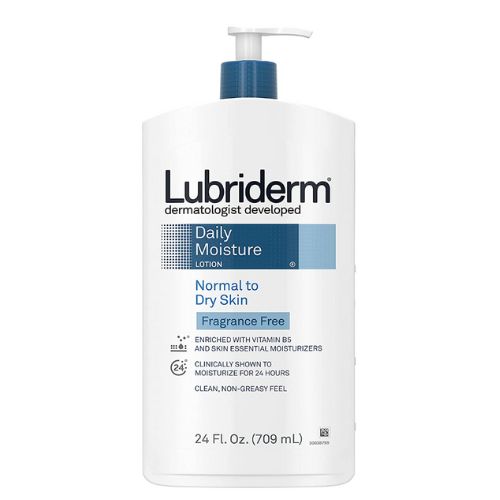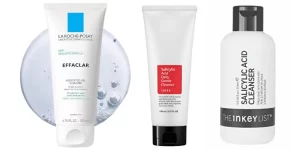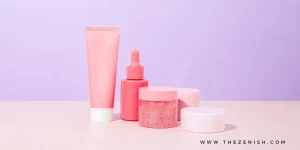
Cetaphil vs Lubriderm for tattoos: which one should you use for your new tattoo?
You know how important it is to take good care of your tattoos, especially during the healing process.
That’s why you need a moisturizer that will keep your skin hydrated, prevent infection, and preserve the color and quality of your tattoo.
There are many lotions out there that claim to be good for tattoos, but not all of them are created equal.
Some.contain harsh chemicals, fragrances, or alcohol that can irritate your skin and damage your tattoo.

Others are too thick or greasy and clog your pores or suffocate your skin.
You want a lotion that’s gentle, unscented, and fast-absorbing, but also effective and long-lasting.
That’s where Cetaphil and Lubriderm come in. These are two of the most popular and trusted brands (along with Aquaphor, CeraVe, and a few others) when it comes to skincare, and they have some great options for tattoo aftercare.
| this post may contain affiliate links, which means if you purchase from one of these links, I may receive a small commission at no additional cost to you. |
Here are some of the best ones that I’ve tried and loved:
This is my go-to lotion for dry skin and tattoos.
It’s formulated with 3 essential ceramides and other fatty acids that lock in moisture, boost skin’s natural protective barrier, and maintain tattoo color.
It’s also fragrance-free, non-comedogenic, and hypoallergenic, so it won’t cause any irritation or breakouts.
It’s very lightweight and absorbs quickly into the skin, leaving it soft and smooth.
Apply it twice a day on your tattoos and they’ll heal beautifully.
This is another great lotion for tattoos that need extra hydration.
It contains pro-vitamin B5 and other skin-essential moisturizers that replenish, nourish, and moisturize healing skin.
It also helps prevent scabbing, peeling, and fading of the tattoo.
It’s unscented, non-greasy, and dermatologist-developed, so you know it’s safe and effective.
It’s a bit thicker than the Cetaphil lotion, but it still absorbs well and doesn’t leave any residue.
This is bested used on larger or more detailed tattoos that tend to dry out more.
This is a classic lotion that works well for all skin types and tattoos.
It’s enriched with natural emollients and humectants that hydrate and protect the skin.
It’s also fragrance-free, non-irritating, and non-greasy, so it won’t interfere with your tattoo healing or appearance.
It’s a very gentle and soothing lotion that I use on my more sensitive areas or when I want something simple and reliable.
This is a basic but effective lotion that keeps your skin and tattoos healthy and happy.
It contains vitamin B5 and essential moisturizers that improve the skin’s moisture barrier.
It also helps prevent itching, flaking, and cracking of the tattoo.
It’s unscented, lightweight, and fast-absorbing, so it won’t leave any sticky or oily feeling on your skin.
It’s a great everyday lotion that you can use on your smaller or less intricate tattoos that don’t need much fuss.
These are some of the best Cetaphil and Lubriderm lotions for tattoos.
Remember to always follow your tattoo artist’s instructions on how to care for your tattoos, and to keep them moisturized with a good lotion.
Your tattoos are a part of you, so treat them well!
Let’s take a closer look and compare them to help you determine which one is the best option for your tattoo aftercare needs.
Cetaphil vs Lubriderm
Ingredients
While Cetaphil and Lubriderm are both used as tattoo aftercare products, they have some key differences.
Cetaphil is a gentle, non-irritating moisturizer often used for sensitive skin.
It contains ingredients such as glycerin and petrolatum, which help to keep the skin hydrated and moisturized.
Lubriderm, on the other hand, is a more lightweight moisturizer designed to soothe and hydrate the skin.
It contains ingredients like aloe vera and vitamin E, which can help to reduce redness and irritation.
They both have moisturizing properties that are beneficial for tattoo aftercare, but Cetaphil is generally considered to be more effective for dry, sensitive skin.
While Lubriderm is a good option if you have normal to oily skin, as it’s not as thick and heavy as Cetaphil.
Moisturizing properties
Both products are fine for moisturizing and hydrating.
However, Cetaphil is a better choice for dry, sensitive, and irritated skin, and Lubriderm is more suitable for normal to dry skin.
Effectiveness on tattoo healing
Both Cetaphil and Lubriderm have been shown to be effective in aiding the healing of tattoos.
However, their effectiveness depends on several factors like the location and size of the tattoo, your skin type and sensitivity, and proper application.
Cetaphil is a gentle, non-irritating lotion designed to soothe and hydrate sensitive skin.
Its lightweight formula helps reduce itching, redness, and inflammation, making it an ideal choice if you have sensitive skin or tattoos in delicate areas.
Lubriderm, on the other hand, is a nourishing lotion formulated to provide intense moisture to the skin.
Its rich formula helps to soothe and protect tattoos, promoting the healing process and reducing the risk of scabbing, peeling, and fading.
Is Cetaphil good for tattoos? Most importantly can you use either on a new tattoo? Is Lubriderm lotion good for new tattoos?
Ultimately, both Cetaphil and Lubriderm are effective in helping to heal tattoos.
However, the best product for you will depend on your skin type, the location and size of your tattoo, and your personal preferences and needs.
And as always, consult with your dermatologist or your tattoo artist for personalized advice on which product is the best choice for your tattoo aftercare.
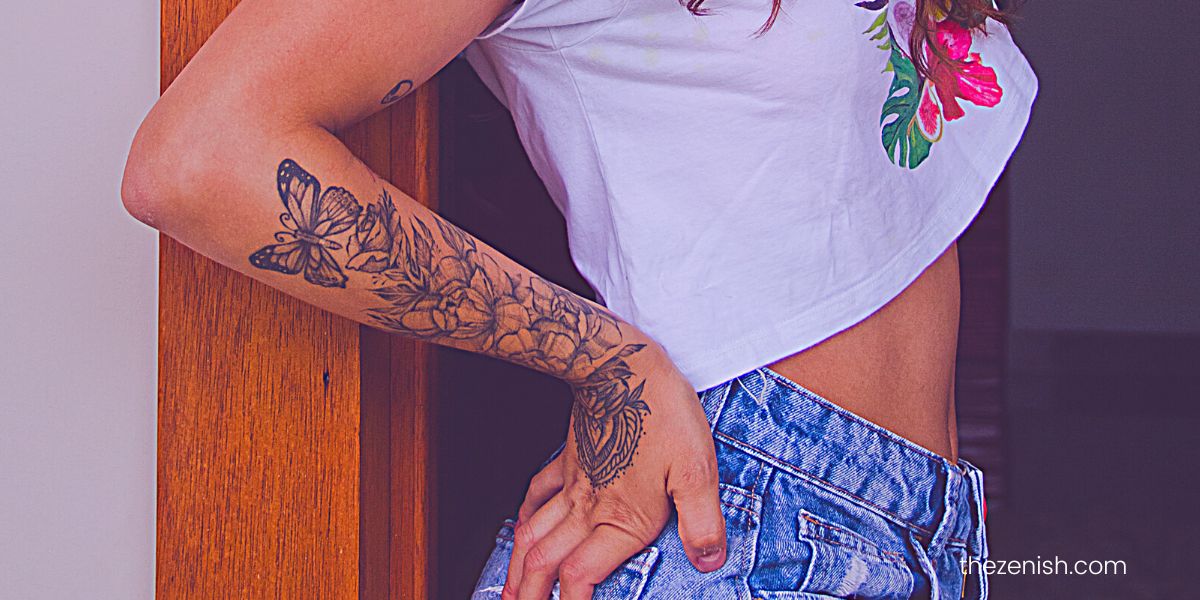
Cetaphil vs Lubriderm for tattoos pros and cons
Cetaphil Pros:
- Gentle and non-irritating formula is suitable for sensitive skin
- The lightweight texture absorbs quickly and doesn’t leave a greasy residue
- Reduces itching, redness, and inflammation to promote healing
- Available in large sizes and can be found in many drugstores
Cetaphil Cons:
- May not provide as much hydration as other aftercare products, especially for larger tattoos
- Some people may find that it’s not moisturizing enough for their skin type
Lubriderm Pros:
- The rich formula provides intense hydration to soothe and protect tattoos
- Helps to reduce the risk of scabbing, peeling, and fading
- Available in multiple formulas for specific skin types, such as sensitive skin or extra-dry skin
- A convenient pump bottle makes it easy to apply
Lubriderm Cons:
- May not be suitable for those with very sensitive skin, as the formula may be too heavy
- Some people may find that it’s too greasy for their skin type
- May not be as widely available as Cetaphil in all areas
Factors to consider when choosing between Cetaphil and Lubriderm for tattoo aftercare
Skin type and sensitivity
When choosing between Cetaphil and Lubriderm for tattoo aftercare, it’s important to consider your skin type and sensitivity.
If you have sensitive skin, a gentle and non-irritating formula like Cetaphil may be the best choice.
Its lightweight texture absorbs quickly and won’t leave a greasy residue, thus reducing the risk of itching, redness, and inflammation.
On the other hand, if you have dryer skin, you might prefer the rich formula of Lubriderm, which provides intense hydration to soothe and protect tattoos.
It also comes in multiple formulas designed for specific skin types, such as sensitive skin or extra-dry skin.
Tattoo location and size
When choosing between Cetaphil and Lubriderm, the location and size of your tattoo should also be taken into consideration.
For smaller tattoos or tattoos in delicate areas, a gentle formula like Cetaphil may be best to avoid irritation.
For larger tattoos or tattoos in areas with thicker skin, a more moisturizing formula like Lubriderm may be more suitable to provide enough hydration to aid healing.
Personal preferences and needs
When choosing between Cetaphil and Lubriderm, your personal preferences and needs should be taken into consideration.
If you prefer a lightweight, non-greasy formula, Cetaphil may be the best option.
However, if you are looking for a more intense moisturizing experience, Lubriderm may be more suitable.
It is also important to consider the availability, cost, packaging, and ease of use of the products.
By considering all of these factors, you can make an informed decision on which product is the best choice for your tattoo aftercare needs.
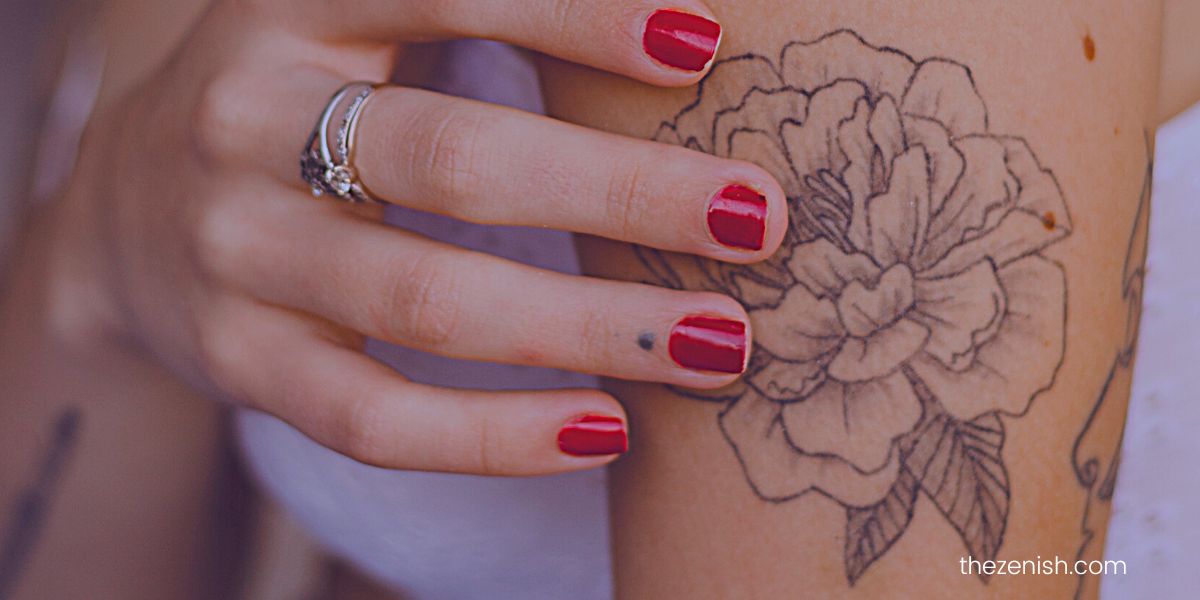
How to use Cetaphil and Lubriderm for tattoo aftercare
Cleaning your tattoo
It’s important to start by properly cleaning your tattoo.
Gently wash it with soap and water, making sure to remove any excess ink or plasma.
Avoid using hot water, as it can cause damage to your skin.
After washing, pat your tattoo dry with a clean, soft cloth.
Applying moisturizer
Once your tattoo is clean and dry, it’s time to apply moisturizer.
If you’re using Cetaphil, simply apply a small amount of lotion to your fingertips and gently massage it into the tattoo, making sure to cover all areas evenly.
If you’re using Lubriderm, take a small amount into your hands and massage it into the tattoo in a circular motion.
Make sure to avoid rubbing the tattoo too hard, as this can cause irritation and damage.
Dos and don’ts of tattoo aftercare
To ensure the best results when using Cetaphil or Lubriderm for tattoo aftercare, there are some dos and don’ts to keep in mind. Some of the dos include:
- Applying the moisturizer regularly, at least 2-3 times per day
- Keeping the tattoo moisturized and protected from the sun and other environmental factors
- Avoiding exposure to hot showers or baths, as this can damage the skin and slow down the healing process
- Following the aftercare instructions provided by your tattoo artist
Some of the don’ts include:
- Avoiding exposure to harsh chemicals, such as bleach or alcohol, as this can cause irritation and damage to the tattoo
- Not picking at the tattoo or scratching it, as this can cause scarring and damage
- Avoiding tight clothing that may rub against the tattoo, as this can cause irritation and damage.
By following these dos and don’ts and properly cleaning and moisturizing the tattoo, you can ensure that it heals properly and looks its best for years to come.

FAQs
Is it okay to use Cetaphil on tattoos?
Yes, Cetaphil is safe to use on tattoos.
In fact, its gentle, non-irritating formula makes it a popular choice for tattoo aftercare, especially for those with sensitive skin.
However, it’s important to follow the proper aftercare instructions and to consult with your tattoo artist before using any new product on your tattoo.
By doing this, you can ensure that your tattoo heals correctly and looks its best for years to come.
When should you stop moisturizing a tattoo?
The amount of time it takes for a tattoo to heal varies from person to person but typically takes around two to four weeks.
During this time, it’s important to keep the tattoo moisturized to prevent your skin from drying out and cracking, which can slow down the healing process and increase the risk of infection.
Once the tattoo has fully healed and your skin returns to its normal texture and color, you can reduce the frequency of moisturizing or stop moisturizing altogether.
However, continue to protect your tattoo from sun exposure.
Should you wash your tattoo every time you moisturize?
No, you don’t need to wash your tattoo every time you moisturize.
In fact, washing a tattoo too often can actually slow down the healing process and increase the risk of infection.
After cleaning the tattoo during the initial stages of the healing process, it’s generally recommended to only wash the tattoo once or twice a day using a mild, fragrance-free soap.
After washing, you should gently pat the tattoo dry with a clean towel and then apply a thin layer of moisturizer.
It is important to avoid using harsh soaps or washing the tattoo too frequently, as this can remove the natural oils from your skin and dry it out.
This can lead to itching and flaking, which can impede the healing process and increase the risk of infection.
It’s always best to follow the aftercare instructions provided by your tattoo artist and to consult with them if you have any questions or concerns about the healing process.
What lotions should you avoid with tattoos?
It’s best to avoid using lotions with ingredients that can irritate or harm newly tattooed skin, such as:
- Alcohol – can cause dryness and irritation, which can slow down the healing process
- Fragrances – some fragrances can cause skin irritation and can even lead to an allergic reaction
- Petroleum-based products – can trap bacteria and create an environment that can cause infection
- Menthol or camphor – can cause a cooling or burning sensation that can irritate the skin
- Hydroquinone – a skin-lightening ingredient that can cause skin irritation and even discoloration
It is always recommended to use lotions specifically formulated for tattoo aftercare, or those recommended by your tattoo artist, to ensure that your tattoo heals properly.
What happens if I over-moisturize my tattoo?
Over-moisturizing your tattoo can cause several problems, including:
- Slowing down the healing process – when you over-moisturize your tattoo, it can create a warm, moist environment that is conducive to bacterial growth. This can slow down the healing process and increase the risk of infection.
- Fading or smudging of the tattoo – when your skin is overly hydrated, the ink can become diluted, leading to fading or smudging of the tattoo.
- Irritation and itching – too much moisturizer can make the skin feel congested and cause irritation and itching.
- Impairing the scabbing process – the natural scabbing process is essential for adequately healing a tattoo. Over-moisturizing can prevent the formation of a good scab, which can result in a less vibrant tattoo.
It is important to moisturize your tattoo properly and as directed by your tattoo artist, to ensure that it heals properly and looks its best for years to come.
Over-moisturizing should be avoided, as it can cause more harm than good.
Final thoughts
Ultimately, both Cetaphil and Lubriderm are practical options for tattoo aftercare; the best choice will depend on your individual needs and preferences.
By carefully considering all factors and following the proper aftercare instructions, you can ensure that your tattoo heals properly and looks good.

